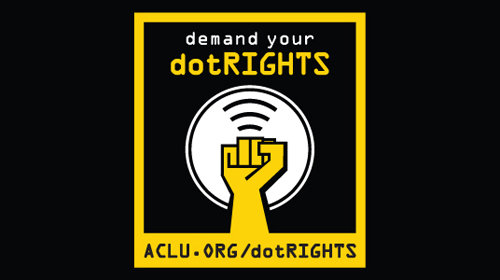
[New York Times – Scott Shane]
"The investigation that toppled the director of the and the reputation of the top American commander in Afghanistan underscores a danger that civil libertarians have long warned about: that in policing the Web for crime, espionage and sabotage, government investigators will unavoidably invade the private lives of Americans."
See Also [Wired– Kim Zetter]
See Also Petraeus and the Perils of Federal Cyber-Stalking Laws [ACLU – Gabe Rottman]
[New York Times – Natasha Singer]
"The number of government requests to Google to hand over user account data is markedly increasing, according to a report published on Tuesday by Google."
See Also [The Atlantic – Rebecca J. Rosen]
Data Brokers Release Information About Their Operations In Response to Congressional Inquiry [ACLU – Jay Stanley]
Yesterday Reps. Ed Markey (D, Mass.) and Joe Barton (R, Texas) a about the operation of the nation’s largest data broker companies. The information came in responses from nine data broker companies to a list of questions by a group of Members led by Markey and Barton seeking details of their operation in light of the privacy sensitivity of what they do. The responses released yesterday provide a good snapshot and reminder of what it is these companies are doing.
ACLU Asks Appeals Court to Require a Warrant for GPS Tracking [ACLU – Catherine Crump]
Yesterday we asked the Third Circuit Court of Appeals to consider our argument that law enforcement agents should have to obtain a warrant based on probable cause to attach a GPS tracker to a car and track its movements (you can read our amicus brief here).
[New York Times – Natasha Singer]
"The number of trackers collecting data on users’ activities on the most popular Web sites in the United States has significantly increased in the last five months, according to research from the Berkeley Center for Law and Technology at the University of California, Berkeley."
[Reuters – Charles Abbott]
"Senate Majority Leader Harry Reid declared a U.S. cybersecurity bill, opposed by and privacy groups, dead on Wednesday after it failed a test vote for the second time."
Learn more about digital privacy: Sign up for breaking news alerts, , and .


